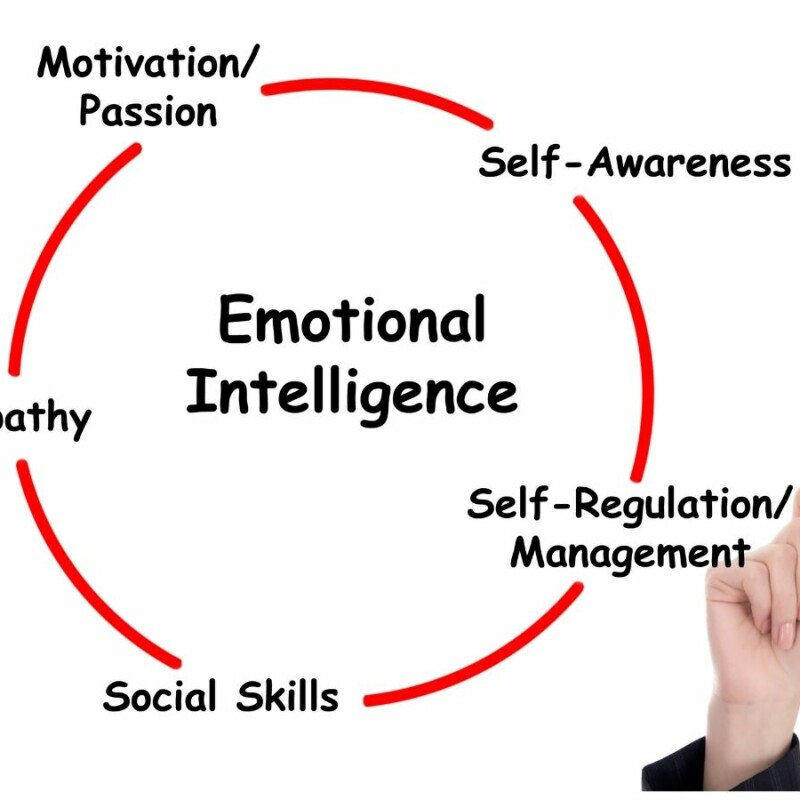All Things Admin Joins ASAP. Learn More ›
Emotional Intelligence in Leadership: Why Is It Important?
December 7, 2022

While it’s important to develop practical skills in leadership positions, EQ is often an overlooked soft skill. More and more organizations are looking for leaders with strong emotional intelligence skills. This is because the face of leadership is changing. The way we build relationships, navigate conflict, and the way we do leadership overall are shifting toward a more EQ-friendly model.
Emotional intelligence, or EQ, is a crucial skill for leaders to develop in the workplace. It’s what makes a manager or administrator stand alone as a true leader. Emotional intelligence in leadership allows administrators to better coach employees, collaborate, and resolve issues. Here’s why.
The Foundations of Emotional Intelligence
Before we define exactly what emotional intelligence is, it’s important to name some of its markers. People who display these characteristics maintain strong emotional intelligence skills. Emotional intelligence comes down to five main principles:
- Self-awareness: The ability to understand how you feel and how you impact others. Having self-awareness means you understand both your strengths and shortcomings.
- Self-regulation: The ability to manage and control your own emotions
- Social awareness: The ability to empathize with others, understand other people’s experiences, and recognize the variations in other people’s backgrounds
- Social skills: The ability to effectively communicate with others
- Self-motivation: The ability to move toward goals and inspire others to do the same
These foundational elements of emotional intelligence can be developed with time and practice. Not everyone who has powerful EQ is well-versed in all of these principles. In fact, many people with high levels of EQ understand both their areas of mastery, along with their areas of improvement. The sign of true emotional intelligence is the ability and willingness to grow. This is proven to be especially valuable in the workplace.
What is Emotional Intelligence?
Emotional intelligence is defined as one’s ability to identify, define, and navigate their emotions and the emotions of those around them. It’s the ability to regulate your own emotions, understand others, and foster an attitude of growth. Leaders with strong EQ are able to effectively manage teams, make connections, and influence positive change.
Those in leadership positions are forced to manage multiple team members, clients, schedules, tasks, conflicts, and so much more. In order to do this successfully, leaders must practice and build their emotional intelligence skills. Without it, a leader is no longer a leader.
When a leader possesses high EQ, they’re able to achieve the following in the workplace:
Resolve Conflicts Easily
Leaders shouldn’t shy away from conflict. This is why developing strong levels of EQ can help a leader navigate conflict with grace. The ability to understand, empathize, and support others in conflict is a necessary skill as a leader.
Inspire Their Team Members
People with strong emotional intelligence aren’t afraid to share their ideas, ask questions, or make adjustments. Leaders will inspire their team members to grow and do better with their ability to communicate effectively.
Promote Positive Change
Leaders guide others by example. A strong leader can promote positive change in the workplace using their emotional intelligence. They can impact those around them in a positive way, and create a supportive work environment, too. By showing others a new way of relating and working, they can create a ripple effect at work, and possibly in their industry, too.
Increase Productivity and Success
Happy team members are more likely to be productive at work. A leader with strong EQ can inspire those around them to do better, do more, and do it with joy. When employees are placed in a positive work environment, they’re more likely to achieve their goals.
Building Emotional Intelligence in the Workplace
Building emotional intelligence in the workplace takes practice, dedication, and skill. Leaders need resources to keep furthering their career success. Luckily, ASAP has you covered.
Join the Conversation
Welcome to the ASAP Circle, a community platform for peer-to-peer conversation on trending topics, professional challenges, and shared experiences. We even have designated spaces for weekly Tuesday Coffee Breaks.










